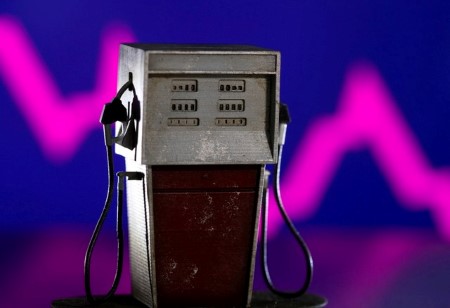




Philippines Trade Update: Imports weaken on tepid demand
 DOWNLOAD
DOWNLOAD

Policy Rate Updates: BSP outlook — cloudy with a chance of rate cut
 DOWNLOAD
DOWNLOAD

January Economic Update: Growth slows, prices rise
 DOWNLOAD
DOWNLOAD


Oil settles higher on strong crude demand, easing recession fears

Oct 27 (Reuters) – Oil rose more than USD 1 a barrel on Thursday, extending the previous day’s rally of nearly 3%, as optimism over record US crude exports and signs that recession fears are abating outweighed concern over slack demand in China.
Data showed record US crude exports, a hopeful sign for demand. Speculation that central banks could be nearing the end of rate-hiking cycles added support, after the European Central bank raised rates by 75 basis points.
“Crude prices are rallying after the US economy bounced back last quarter,” said Edward Moya, senior market analyst at OANDA, referring to strong corporate earnings reports in the latest quarter, though he added oil’s gains were capped by the view that an economic slowdown remains.
Brent crude settled up USD 1.27, or 1.3%, to USD 96.96 a barrel while US West Texas Intermediate (WTI) crude settled up USD 1.17, or 1.3%, to USD 89.08 a barrel.
Worries about Chinese demand limited the rally. Global investors dumped Chinese assets early this week as the economy of the world’s biggest energy consumer was beset by a zero-COVID policy, a property crisis and falling market confidence.
“Concerns that China’s muddled economic policies may continue under President Xi Jinping’s growing power weighed on sentiment,” said Hiroyuki Kikukawa, general manager of research at Nissan Securities.
In early trade, the US dollar touched a one-month low, lending oil support, although the US currency rallied later. A weaker dollar makes oil cheaper for holders of other currencies and usually reflects greater investor appetite for risk.
Crude surged early this year after Russia invaded Ukraine, with Brent coming close to its all-time high of USD 147 in March. More recently, oil has slumped on economic worries.
US and Western officials are finalising plans to impose a cap on Russian oil prices. The World Bank warned that any plan will need active participation of emerging market economies.
(Additional reporting by Alex Lawler in London and Yuka Obayashi in Tokyo; Editing by Mike Harrison, Kirsten Donovan, David Gregorio and Deepa Babington)
This article originally appeared on reuters.com





 By Reuters
By Reuters